- Home
- Best Pet for Me
- Good Dog Breeds for Apartments
Good Dog Breeds For Apartments
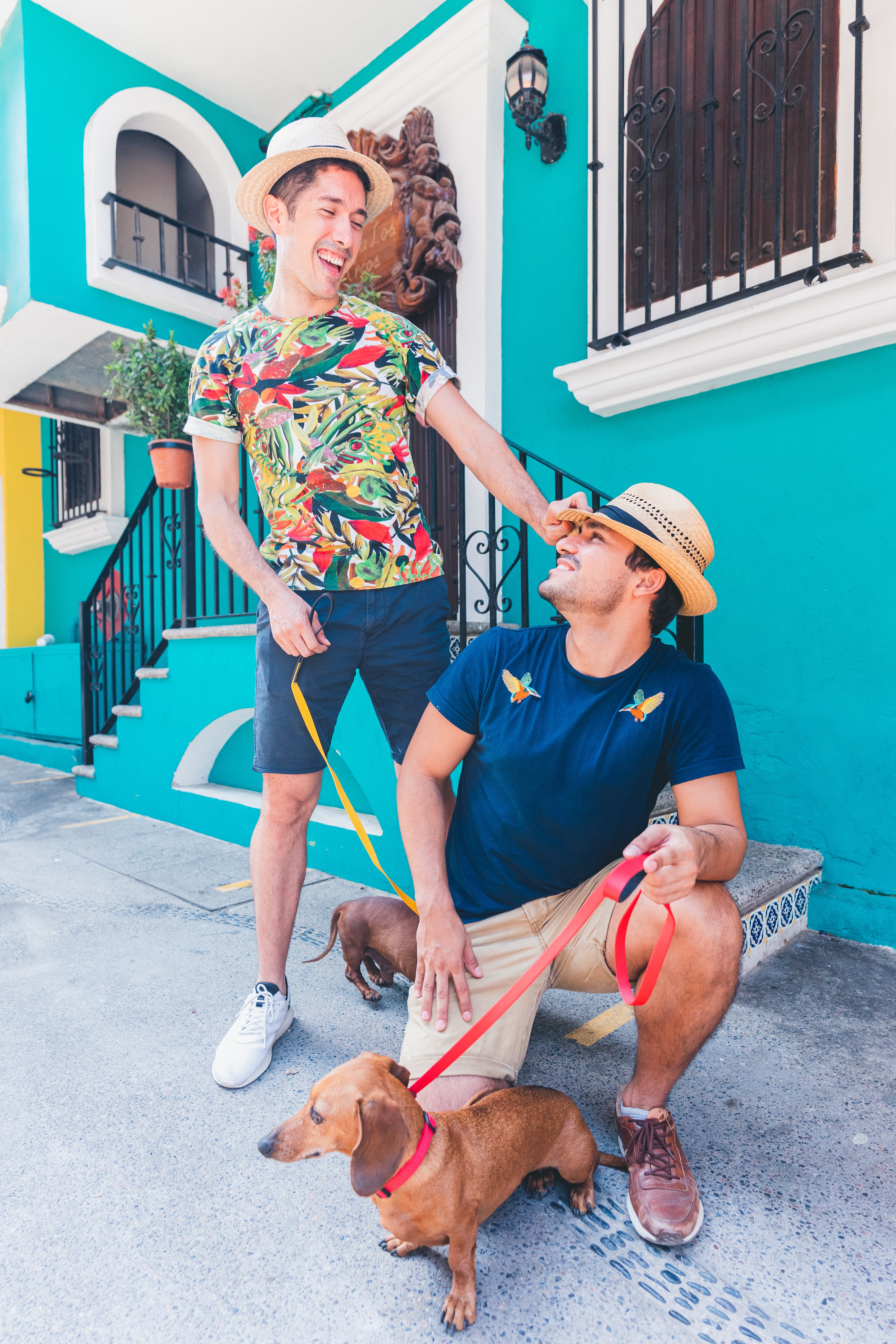 Photo by Los Muertos Crew: https://www.pexels.com/photo/a-romantic-couple-holding-dogs-8230097/
Photo by Los Muertos Crew: https://www.pexels.com/photo/a-romantic-couple-holding-dogs-8230097/If you are thinking about adopting a dog, you will want to consider what are good dog breeds for apartments and city living.
Dogs are the most popular pets in the U.S., and many dog breeds are ideal for apartment living.
However, not all dogs are made for small spaces or city life. Some thrive in apartments, while others need more room to roam.
So, when choosing a dog for your apartment, it’s important to think about its personality, energy level, grooming needs, noise level, and how well it gets along with children or other pets.
One of the first things to consider is the dog’s energy level and personality.
Some breeds, like French Bulldogs or Cavalier King Charles Spaniels, are more laid-back and do well in smaller spaces.
On the other hand, breeds like Border Collies or Huskies are high-energy and may need more exercise and space to stay happy.
It’s important to choose a breed that matches your lifestyle, especially when you’re living in the city.
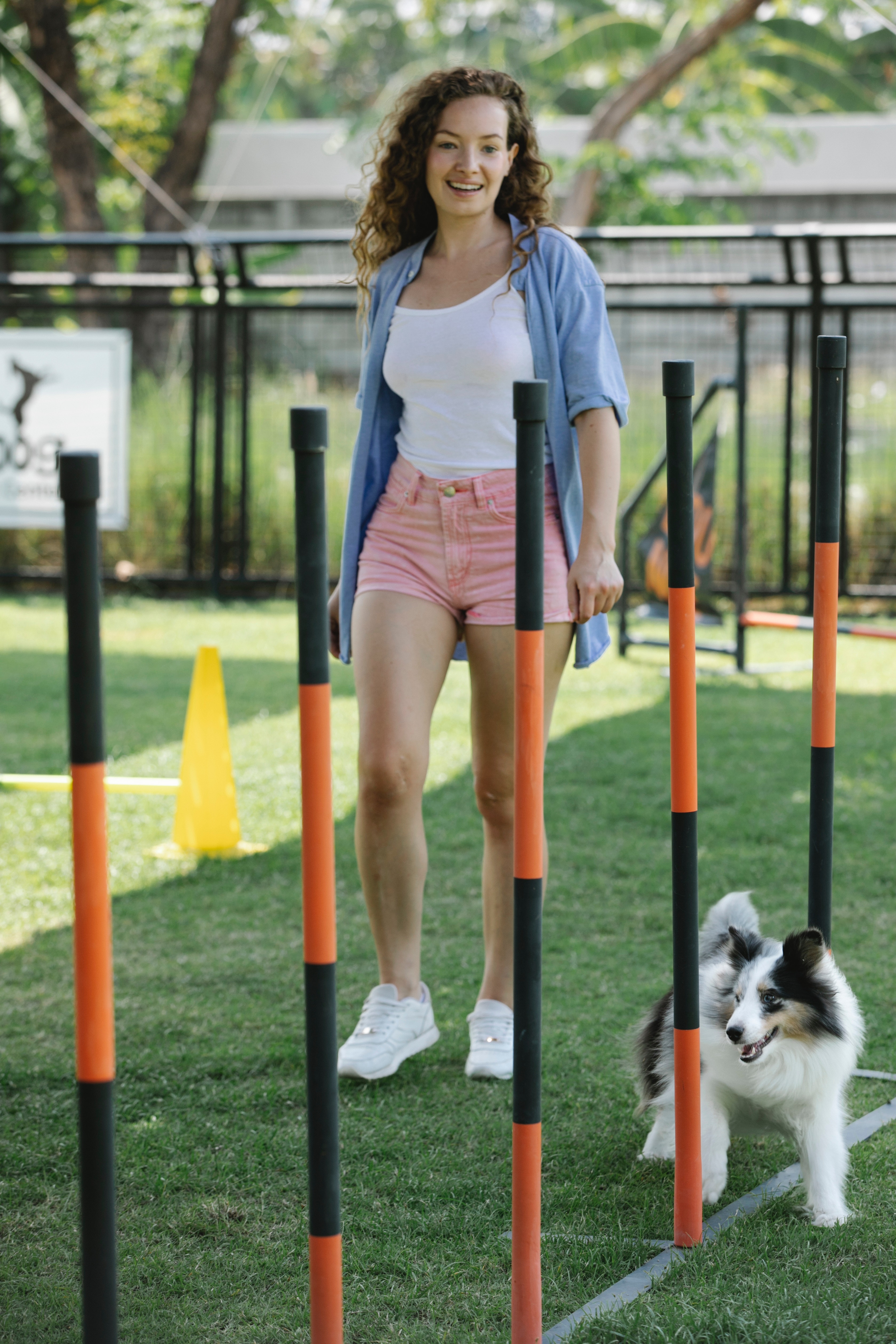 Photo by Blue Bird: https://www.pexels.com/photo/happy-woman-with-sheltie-on-sports-ground-7210271/
Photo by Blue Bird: https://www.pexels.com/photo/happy-woman-with-sheltie-on-sports-ground-7210271/Another factor to think about when you are considering good dog breeds for apartments is shedding.
If you have allergies or simply prefer less mess, hypoallergenic breeds like Poodles or Shih Tzus are a good choice since they shed very little.
Breeds with longer coats, like Golden Retrievers or Huskies, tend to shed more and may require regular grooming to keep their fur in check, which could be tricky in a small apartment.
How easy a dog is to train also matters.
Some dogs, like Labradors or Beagles, are quick learners and easy to train, making them a good fit for apartment living. Others may need more patience and consistent training, especially if they have an independent streak.
You’ll also want to think about how noisy your dog is.
Some breeds, like Dachshunds and Chihuahuas, tend to bark a lot, which might be an issue if you live in an apartment with thin walls. If you need a quieter dog, consider breeds like Basenjis or Greyhounds, which are generally quieter and less likely to disturb your neighbors.
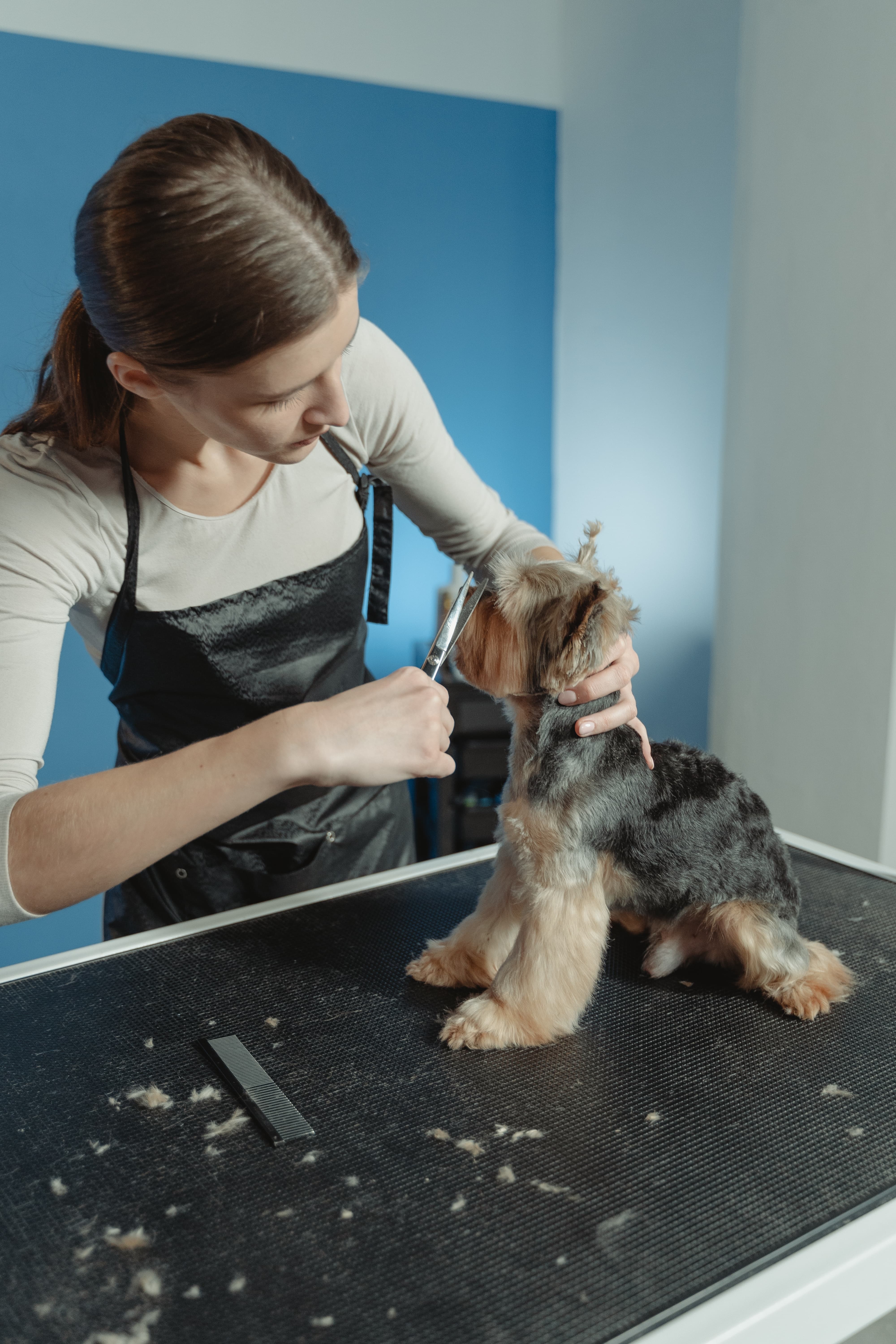 Photo by Tima Miroshnichenko: https://www.pexels.com/photo/woman-grooming-hair-of-yorkshire-terrier-6131566/
Photo by Tima Miroshnichenko: https://www.pexels.com/photo/woman-grooming-hair-of-yorkshire-terrier-6131566/Grooming is another important consideration.
Some dogs require regular grooming to keep their coat healthy and clean, such as Bichon Frises or Schnauzers.
If you don’t have the time or desire for frequent grooming sessions, a breed with lower grooming needs like a Dachshund or Boxer might be a better fit.
Lastly, think about how your dog will get along with other pets or children.
If you have a family or plan on introducing your dog to other pets, breeds like Golden Retrievers or Cocker Spaniels are known for being friendly and sociable.
If you’re looking for a dog that’s a bit more independent or territorial, it’s important to choose one that matches your environment.
Choosing good dog breeds for apartments and your lifestyle takes some thought, but it’s worth it. By considering your dog’s energy levels, grooming needs, and compatibility with your living situation, you can find a dog that will be a perfect fit for your city life.
There are Good Dog Breeds for Apartments, But Each Dog is an Individual
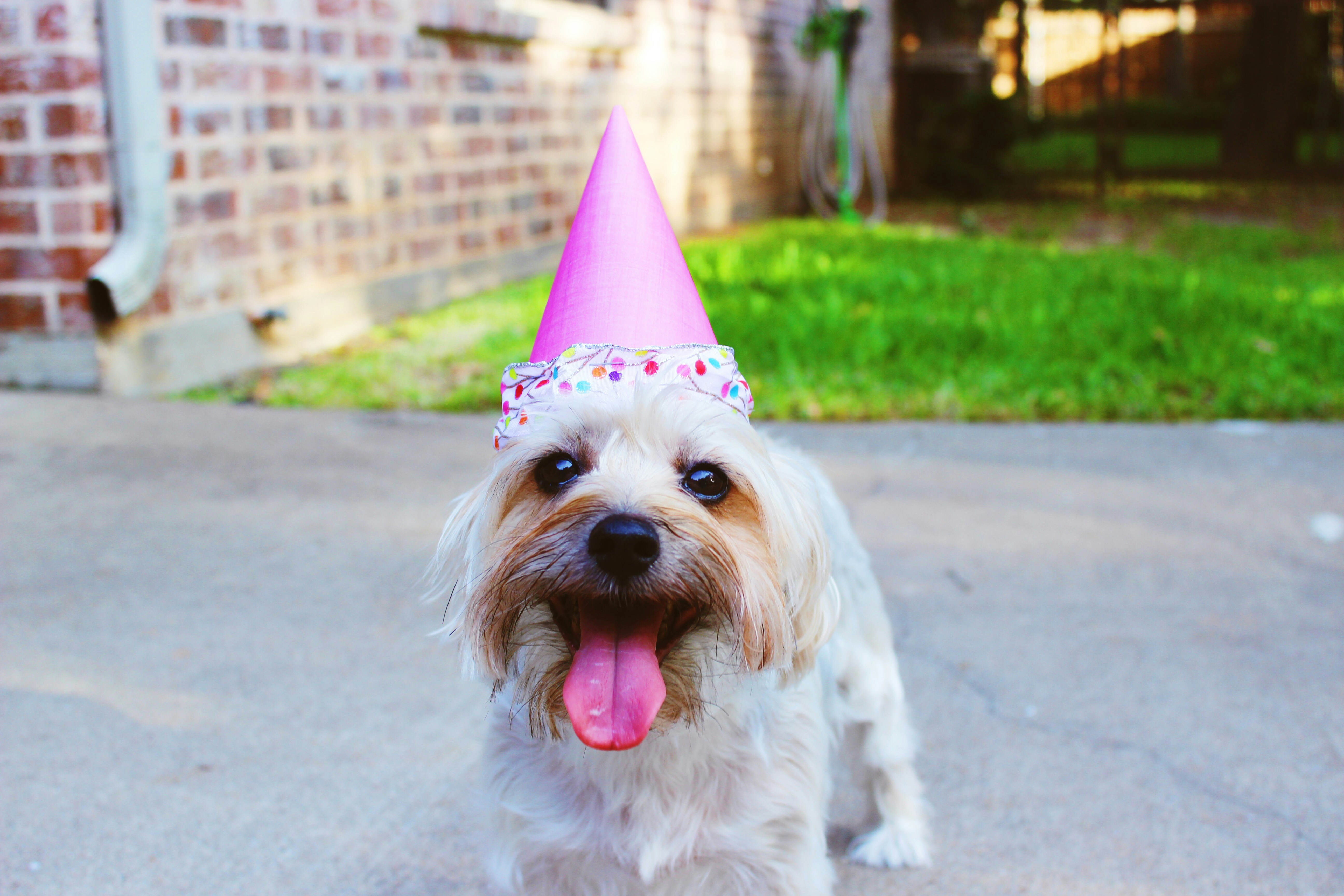 Photo by Delaney Dawson on Unsplash
Photo by Delaney Dawson on UnsplashOf course, every dog has its own unique personality, so an individual dog from a breed that typically does well in the city may not necessarily enjoy urban life.
Similarly, a dog from a breed that is usually better suited for rural living may surprise you by adapting well to city life.
That being said, there are some key factors to consider when it comes to certain dog breeds living in the city.
Understanding a breed's general temperament, energy levels, and specific needs can help you make a more informed decision about which dog will thrive in your apartment or urban environment.
Let’s take a closer look at a few breeds and their potential compatibility with city living.
All Dogs Need Exercise, But Larger Dogs Need More Space to Run
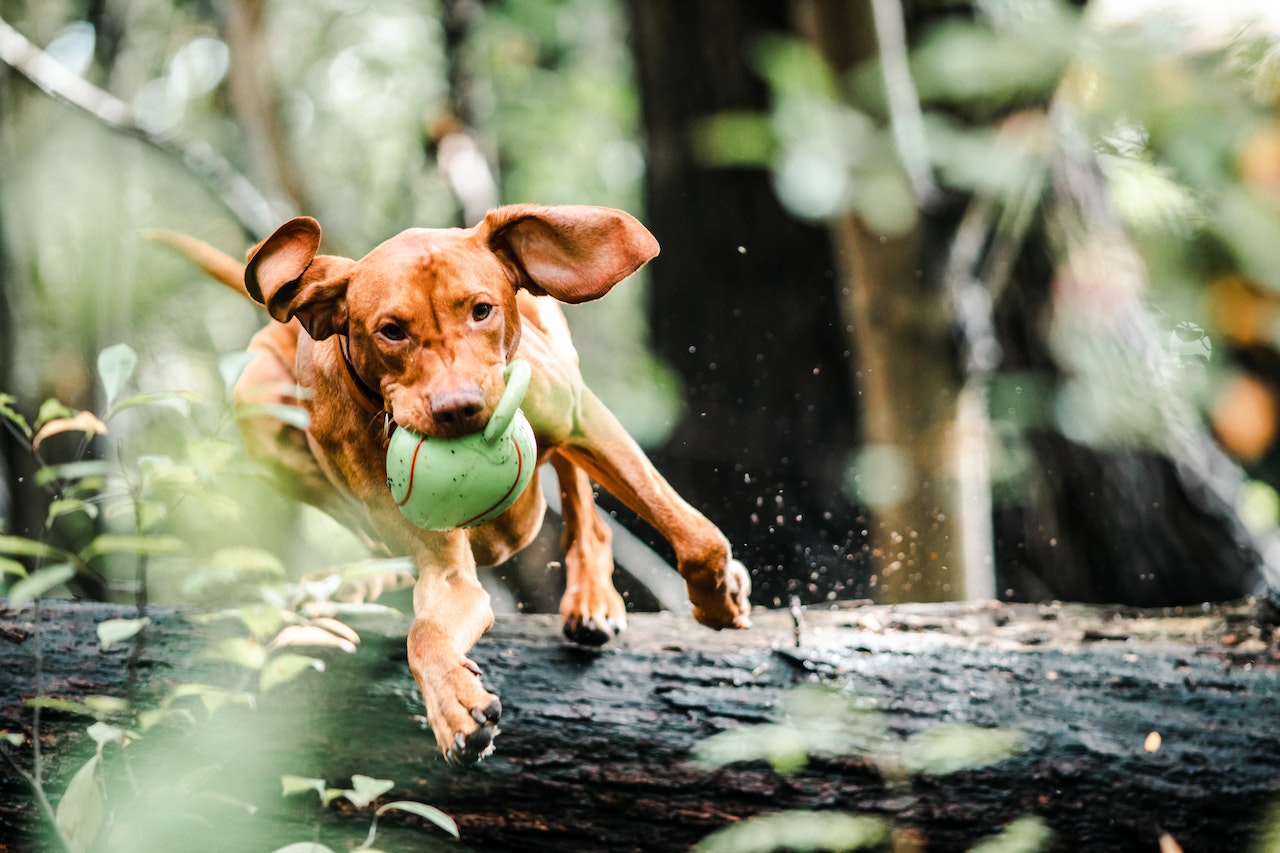 Photo by chepté cormani: https://www.pexels.com/photo/dog-with-ball-in-mouth-jumping-over-a-fallen-tree-trunk-3013467/
Photo by chepté cormani: https://www.pexels.com/photo/dog-with-ball-in-mouth-jumping-over-a-fallen-tree-trunk-3013467/Dogs, particularly large breeds, require daily exercise to stay healthy and happy.
A big dog will need plenty of aerobic exercise every day, and you'll also need to ensure they have enough space at home to move around comfortably.
If you're in the city, having a dog walker, access to a yard where the dog can run, or a nearby dog park can make owning a large breed dog in the city completely feasible.
However, it's important to consider the practicalities of city living for a large dog.
For example, be mindful of how many stairs your dog has to climb, as frequent stair use can cause joint problems, particularly as the dog gets older.
Ideally, your dog should have a relatively easy route to get outside, with minimal stair climbing to avoid putting unnecessary strain on their joints.
With the right care and setup, large breed dogs can thrive in the city—just make sure their physical and emotional needs are met!
Herding and Sporting Dog Breeds Need to Work!
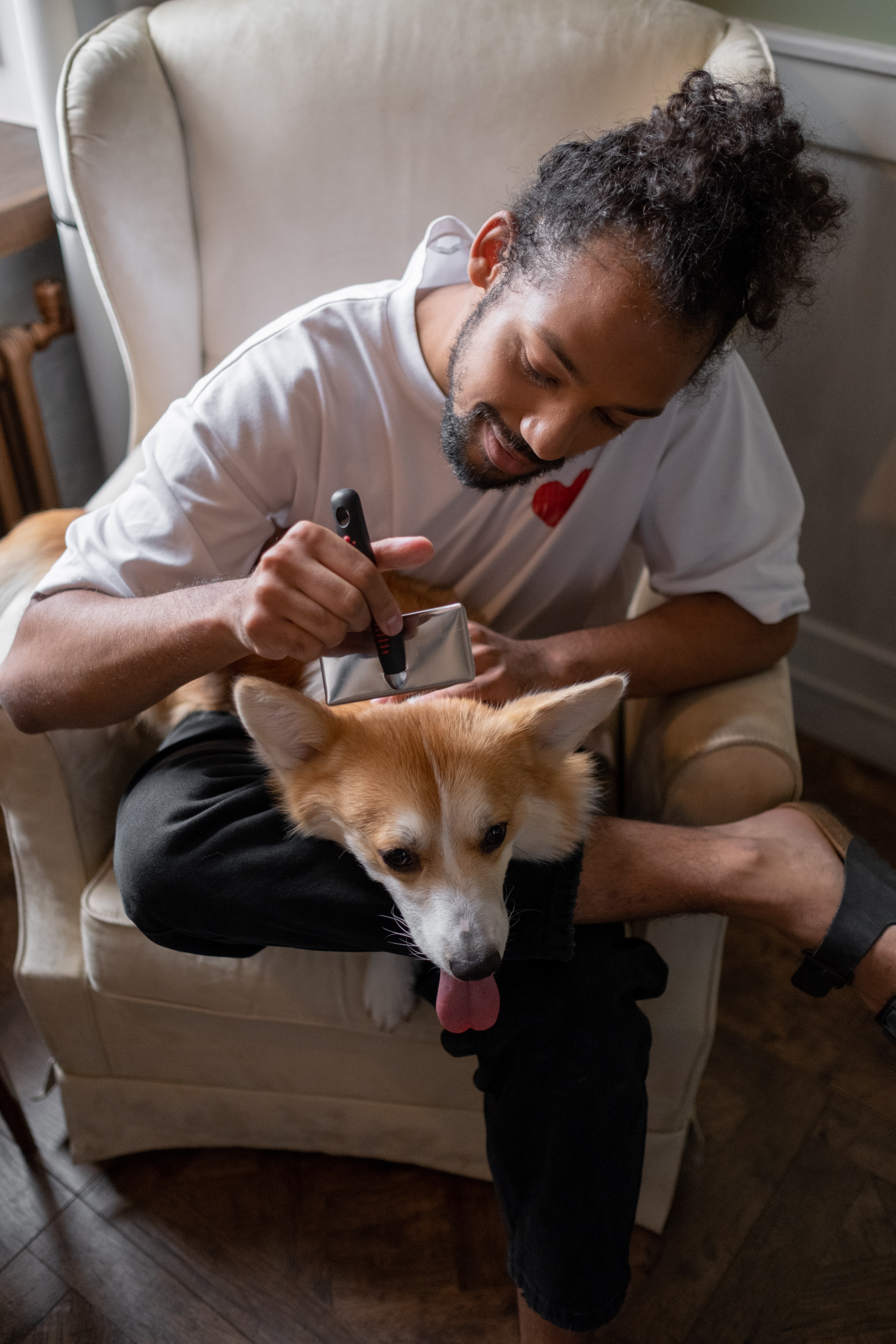 Photo by Ron Lach : https://www.pexels.com/photo/man-combing-corgi-with-furminator-on-valentines-day-9985949/
Photo by Ron Lach : https://www.pexels.com/photo/man-combing-corgi-with-furminator-on-valentines-day-9985949/A herding breed or a sporting breed of dog needs to work.
So living a luxurious apartment life may be too boring for this type of dog.
They would get bored and a bored dog is an unhappy dog. They will have all kinds of behavioral problems and be difficult to live with. They may bark or dig excessively, and they might chew on things.
So if you want to have a large dog that is a sporting or herding dog, make sure you can keep them occupied and moving.
Herding dogs have been bred to gather and protect livestock.
Pet herding dogs will probably try to herd the humans they live with!
Herding dogs have been described as industrious, athletic, energetic, focused, highly intelligent, fast learners, and loyal.
So if you can give them the exercise and stimulation they need, they could be great city pets.
Just realize that they are high maintenance.
Shepherds, Sheepdogs, Corgis, and Collies are all examples of herding breeds.
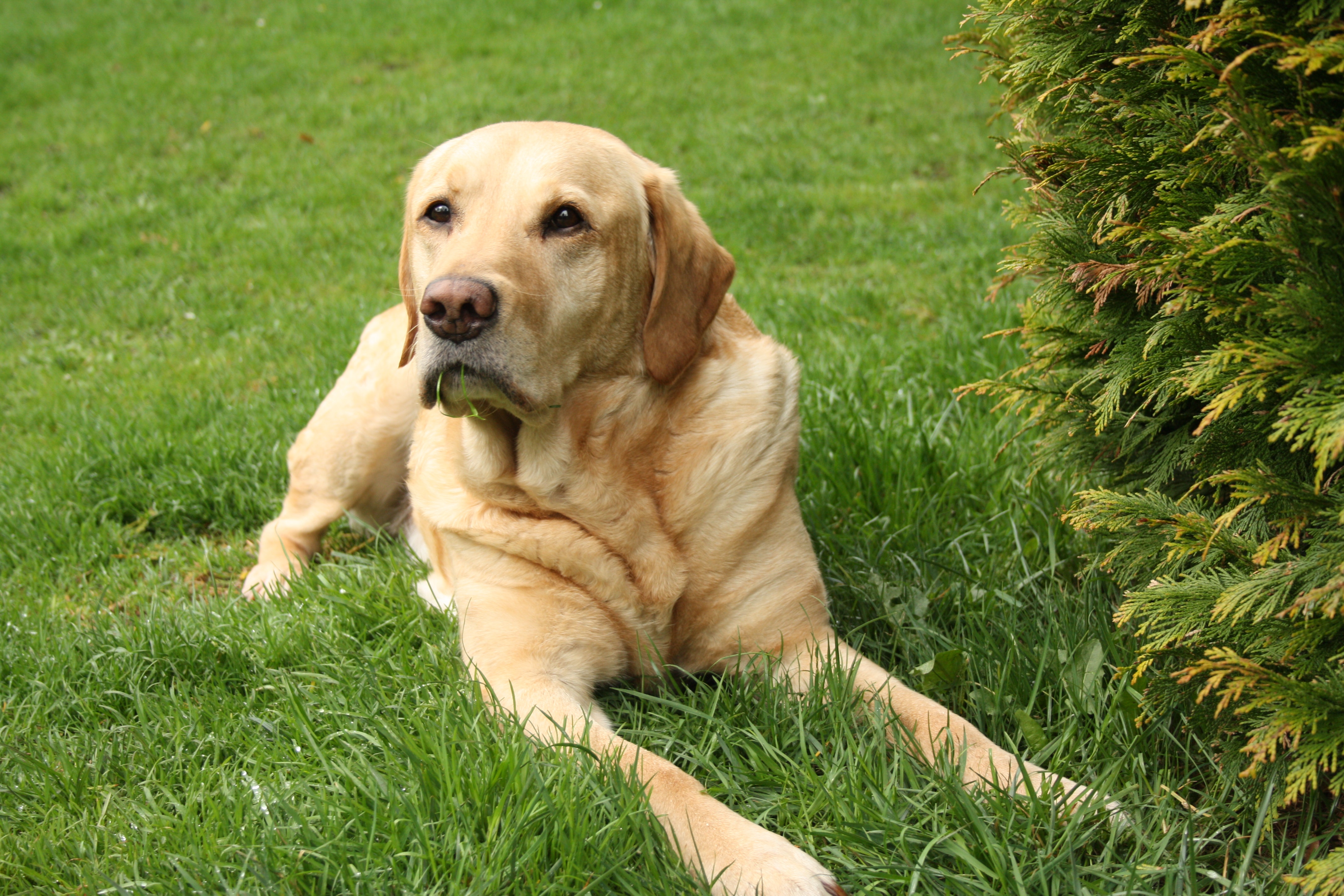 Photo by Joshua Köller: https://www.pexels.com/photo/adult-brown-labrador-retriever-1010121/
Photo by Joshua Köller: https://www.pexels.com/photo/adult-brown-labrador-retriever-1010121/Sporting dogs were originally bred for hunting, specifically to spot game, flush it out into the open, and retrieve it.
These dogs are typically energetic, intelligent, and highly trainable.
Their enthusiasm, playfulness, loyalty, and protective nature make them wonderful pets, especially for active families or individuals.
However, they need plenty of mental and physical stimulation to keep them happy. Without sufficient activity, they can become bored and may develop undesirable behaviors.
Sporting breeds, including Spaniels, Pointers, Retrievers, and Setters, are known for their eagerness to please and their ability to excel in training.
They thrive on interaction and need regular exercise, such as walks, runs, or engaging in active play. If you can meet their needs for exercise and mental engagement, they make fantastic companions, bringing affection, joy, and even a sense of purpose to your home.
Hound Dogs: Great Sense of Smell and Like to Bark
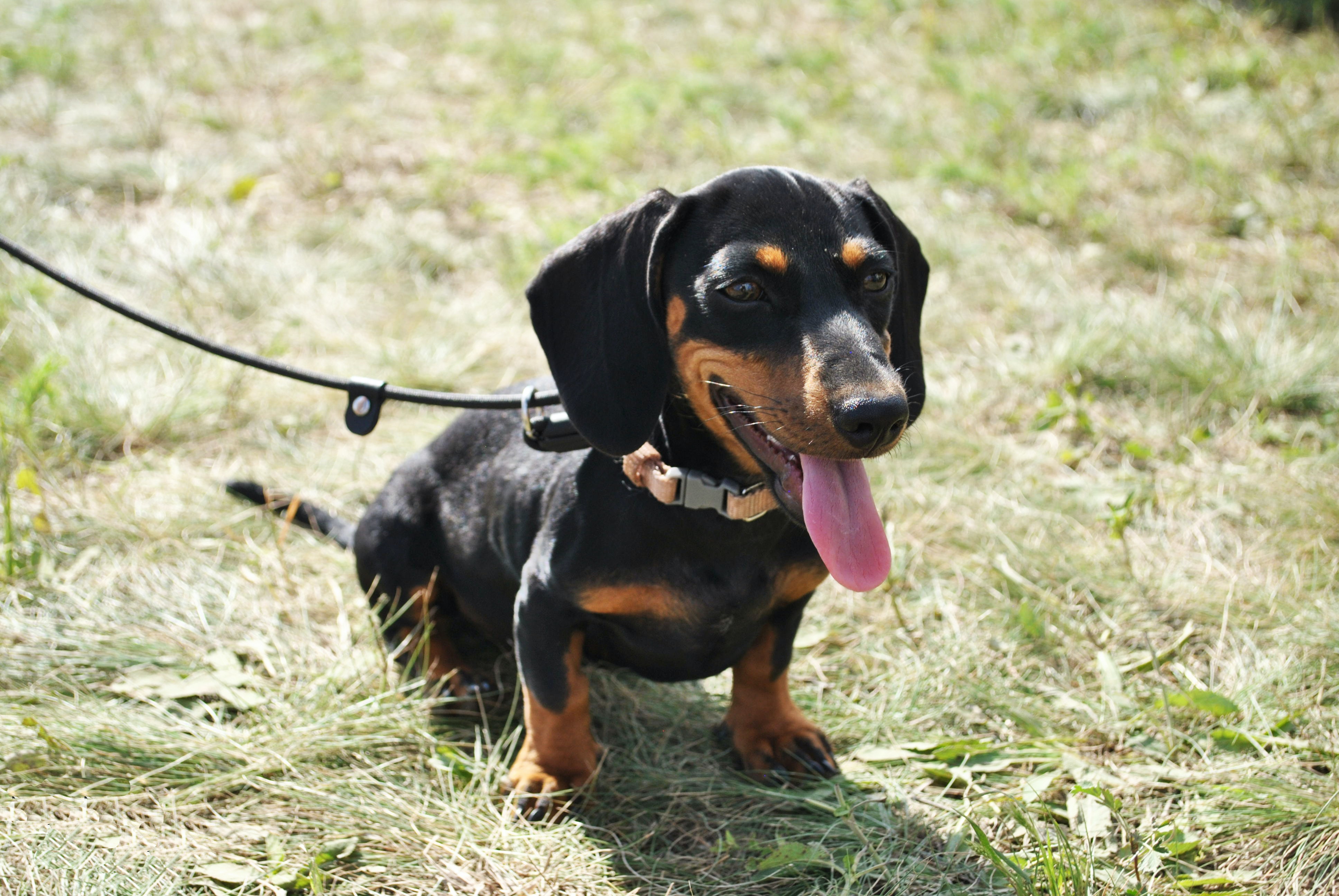 Photo by Balog Krisztina: https://www.pexels.com/photo/a-dog-leashed-on-daytime-3678869/
Photo by Balog Krisztina: https://www.pexels.com/photo/a-dog-leashed-on-daytime-3678869/Hound dogs are a diverse group of breeds known for their incredible sense of smell, which makes them excellent hunters.
They have been specifically bred to track and sniff out prey, often covering long distances in search of scents.
Their strong noses make them natural explorers, but they also come with some unique characteristics that potential owners should consider.
One of the most notable traits of hound dogs is their tendency to howl or bark when they detect something interesting, which can lead to excessive barking if not managed properly.
This trait is particularly strong in certain breeds, and while their vocalizations can be endearing, they might not be good dog breeds for apartments or for people seeking a quiet household.
Hound dogs come in a wide variety of shapes, sizes, and temperaments.
For example, Beagles are small and energetic, while Basset Hounds are larger and known for their distinctive droopy ears.
Dachshunds, with their long bodies and playful nature, are another well-loved hound breed.
On the larger end of the spectrum, Irish Wolfhounds are gentle giants with a calm demeanor.
Each breed has its own unique set of characteristics, but all hounds share a strong prey drive and a need for regular exercise and mental stimulation to stay happy and healthy.
Toy Dogs: Generally Good Dog Breeds for Apartments
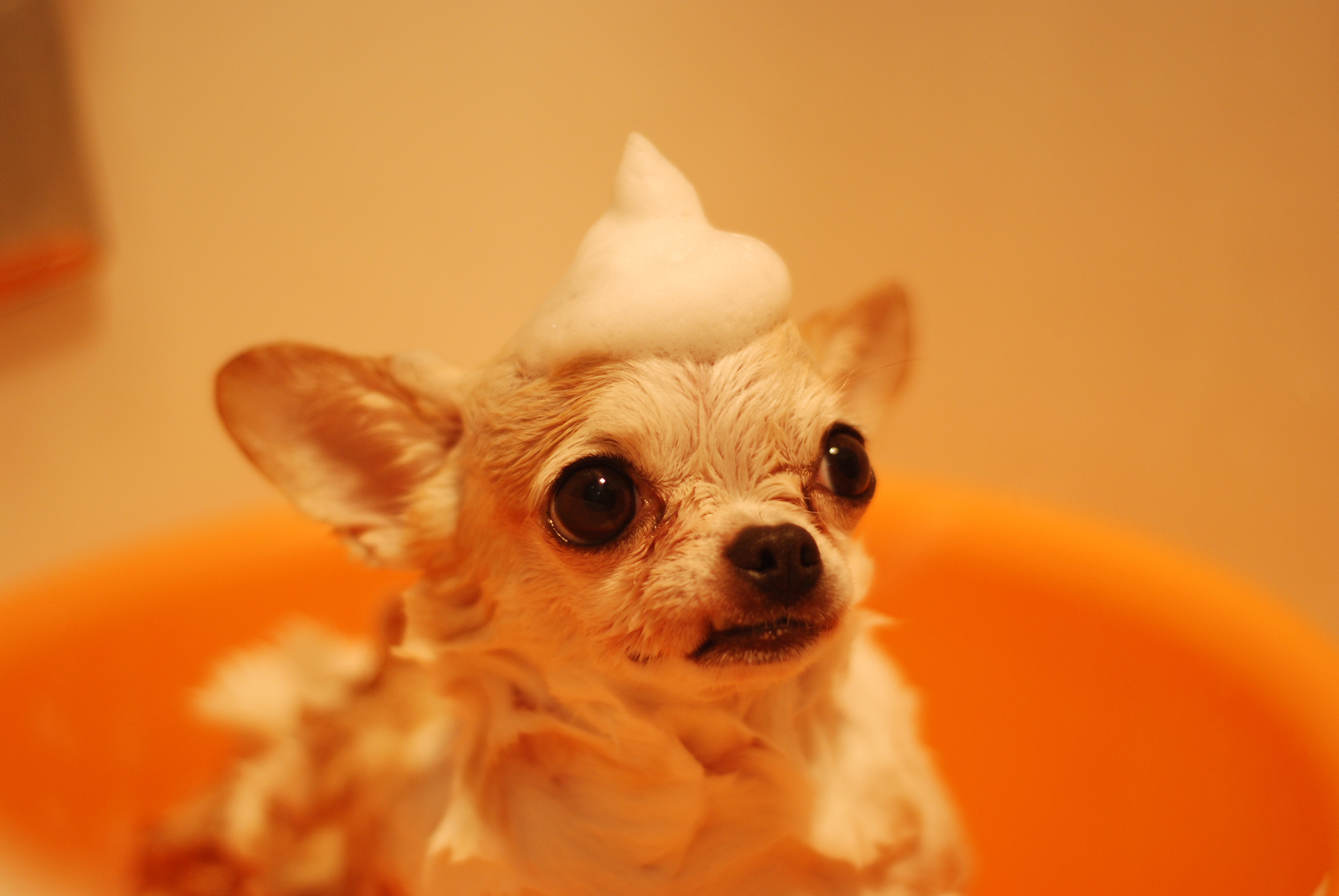 Photo by nishizuka: https://www.pexels.com/photo/brown-chihuahua-485294/
Photo by nishizuka: https://www.pexels.com/photo/brown-chihuahua-485294/Toy dog breeds are often the go-to choice for apartment dwellers or those with limited living space. They are good dog breeds for apartments.
These small dogs are typically well-suited for confined spaces due to their compact size and generally easy-to-care-for nature.
However, while they’re often low-maintenance in terms of exercise requirements, it’s important to note that toy breeds can sometimes face unique health challenges that larger dogs may not encounter. Issues like dental problems, breathing difficulties, and joint issues are more common among smaller breeds, so regular veterinary care is crucial.
Despite their small stature, toy dogs can have big personalities. Many are known for being spirited, affectionate, and full of energy.
Some can be a bit stubborn or prone to yapping, especially if they feel threatened or overly pampered.
Although their small size makes them less dangerous than larger breeds, it’s important to train them properly to avoid behavioral issues like excessive barking or nipping.
Popular toy dog breeds include Pugs, with their adorable wrinkled faces and affectionate nature; Chihuahuas, known for their feisty attitudes and loyalty; Shih Tzus, with their sweet temperaments and long, flowing coats; and Toy Poodles, which are intelligent, easy to train, and hypoallergenic.
These breeds may have different needs and temperaments, but all share a strong bond with their owners and are well-suited for people looking for a devoted companion in a small living space.
Guard Dogs: Good Dog Breeds For Apartments if Trained and Socialized Well
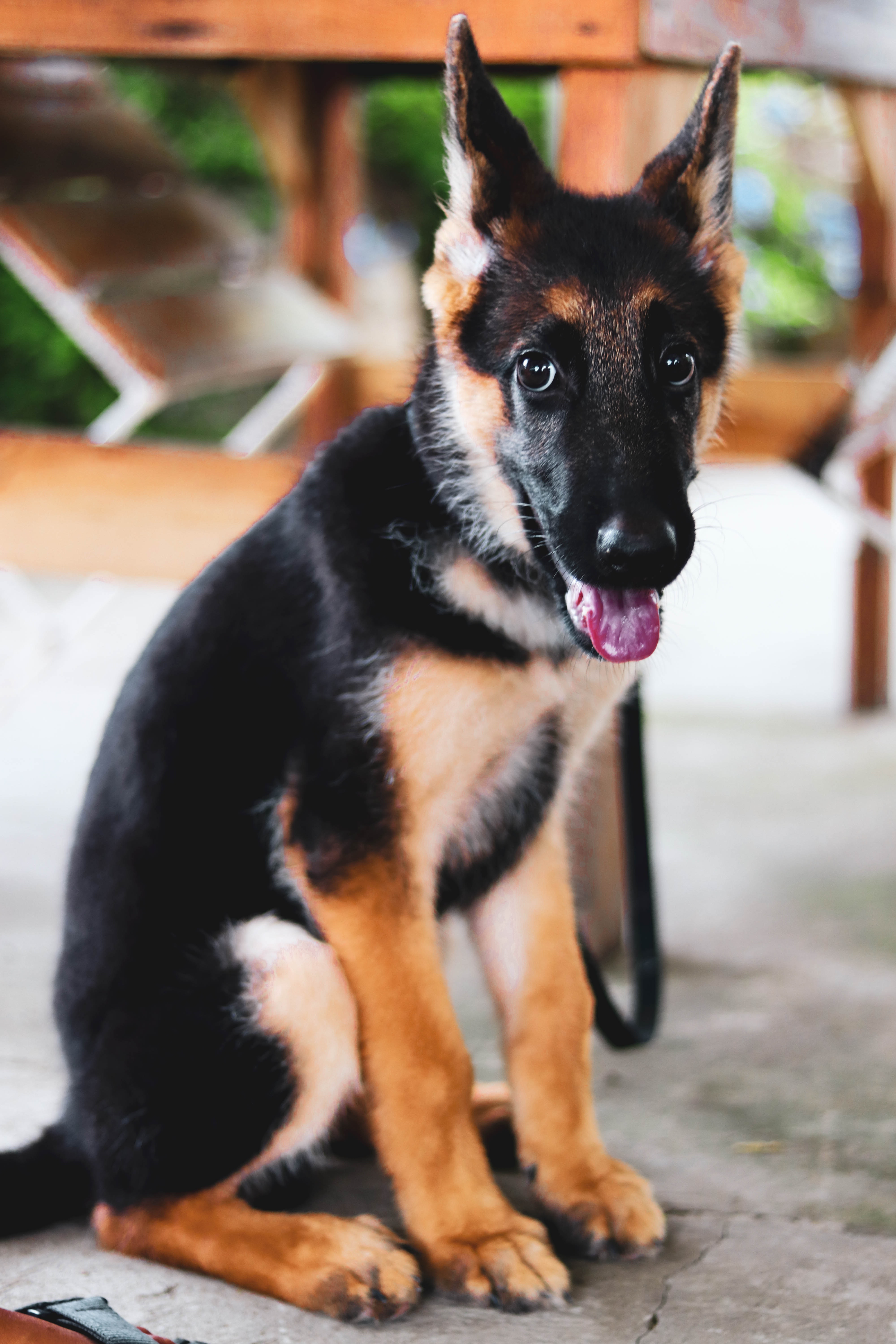 Photo by Carl Adrian Barcelo: https://www.pexels.com/photo/black-and-tan-german-shepherd-3709026/
Photo by Carl Adrian Barcelo: https://www.pexels.com/photo/black-and-tan-german-shepherd-3709026/Are you in the market for a guard dog, one that will alert you when a stranger approaches and provide a sense of protection both at home and during walks?
If so, certain breeds are well-suited for guarding and protection, offering loyalty, strength, and natural instincts.
A Cane Corso, for instance, is a powerful breed that excels in guarding. Despite their intimidating size, they generally don't require excessive exercise compared to other large dogs, making them a manageable option for many owners looking for a protective companion without the need for hours of daily physical activity.
Other good dog breeds for apartments that are great guard dogs include the German Shepherd, known for its intelligence and versatility, making it ideal for both protection and service work.
Belgian Malinois, often used in police and military roles, are highly trainable and agile, offering a combination of strength and precision.
Rottweilers are another breed often associated with guarding, possessing both physical power and a protective nature.
Finally, the Doberman Pinscher is known for its loyalty and alertness, quickly reacting to any perceived threat with a sharp, confident demeanor.
While these breeds are excellent protectors, it’s important to remember that all guard dogs need proper training and socialization to ensure they respond appropriately to strangers and are well-adjusted to family life.
With the right care, these dogs can be both loving companions and formidable protectors of your home.
Understanding the Temperament of "Dangerous" Dog Breeds
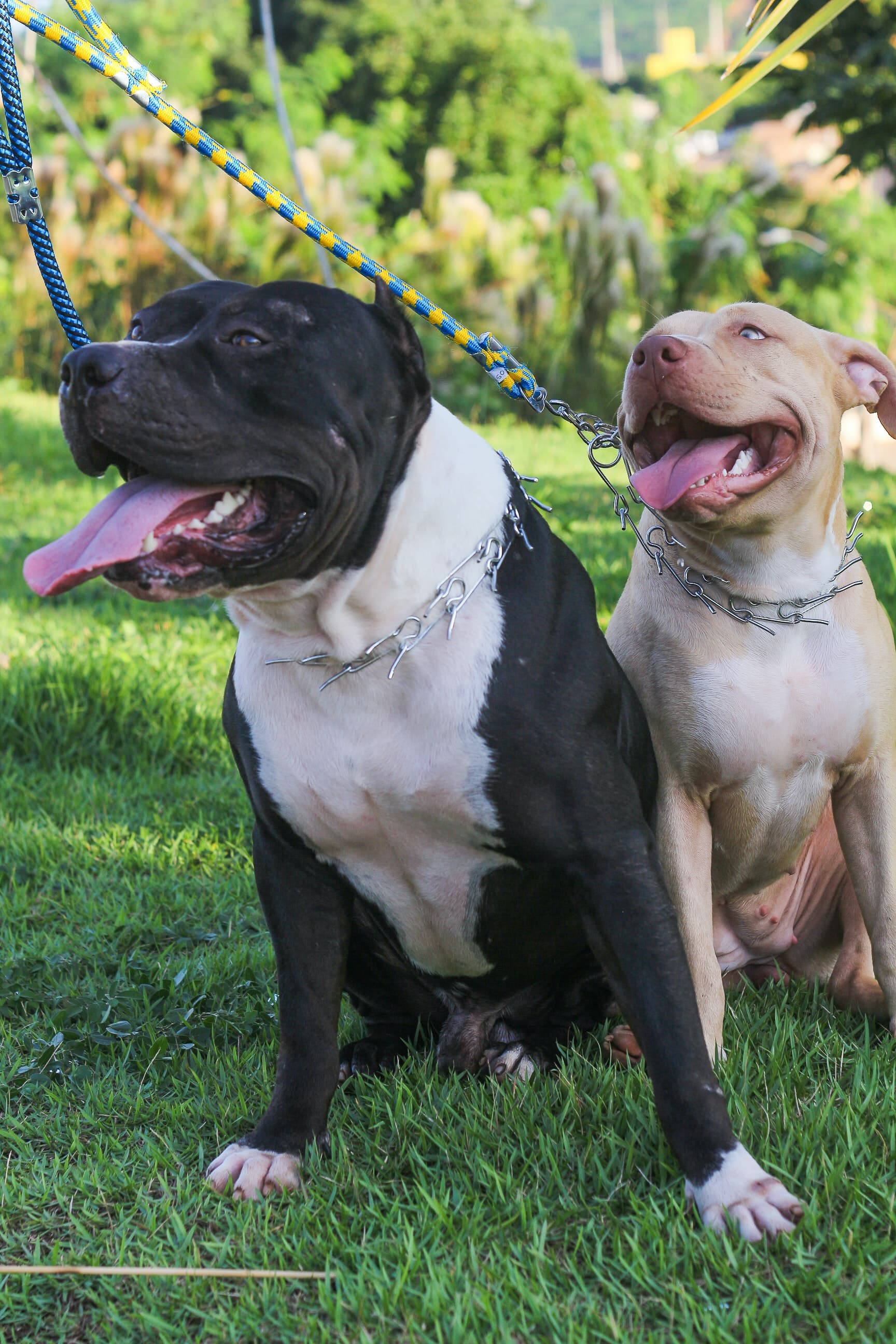 Photo by Gustavo Santana: https://www.pexels.com/photo/portrait-of-two-dogs-sitting-5860549/
Photo by Gustavo Santana: https://www.pexels.com/photo/portrait-of-two-dogs-sitting-5860549/Pitbulls, German Shepherds, and Rottweilers are often considered dangerous breeds due to their large size, muscular build, and powerful presence.
These dogs are frequently stereotyped as aggressive, largely because some have been trained for fighting or protection.
However, it's important to note that a dog’s temperament is not solely defined by its breed.
With proper training, socialization, and care, many dogs from these breeds can be gentle, loving, and loyal companions.
The key to having a well-adjusted dog, regardless of breed, is gentle, positive training techniques in a calm and supportive environment.
A well-trained dog can thrive in any setting, whether it's a family home, a dog park, or in public.
However, if you’re considering adopting a dog from one of these breeds, particularly if it's a rescue, it’s important to approach training with caution. You may not know what kind of treatment the dog experienced prior to your care. Abuse or neglect in a dog’s early life can have long-lasting effects on behavior, and this is especially true for breeds that are often perceived as dangerous.
It’s also crucial to understand the social challenges that come with owning a dog that may be viewed as aggressive by the public. People may be wary or frightened just by looking at the dog, and some may even label it as vicious, regardless of its behavior. This perception can impact your interactions with others and put extra pressure on you as the dog’s owner.
Though all dogs have the potential to act aggressively if they feel threatened, it's essential to remember that the responsibility lies with the owner to provide a safe, loving, and structured environment.
By using patience and a careful approach, dogs from these breeds can be wonderful pets. But, because of the public perception, you'll need to be extra vigilant in how you train, socialize, and manage your dog’s behavior to ensure both their well-being and the safety of others.
Best Dogs for Families
 Photo by PNW Production: https://www.pexels.com/photo/happy-mother-and-child-playing-with-their-pet-dog-7677733/
Photo by PNW Production: https://www.pexels.com/photo/happy-mother-and-child-playing-with-their-pet-dog-7677733/The American Kennel Club lists the following breeds as the best for kids and families:
- Labrador Retriever
- Bulldog
- Golden Retriever
- Beagle
- Pug
- Irish Setter
- Brussels Griffon
- Newfoundland
- French Bulldog
- Collie
Adopting a Rescue Dog: Understanding the Potential of Mixed Breeds
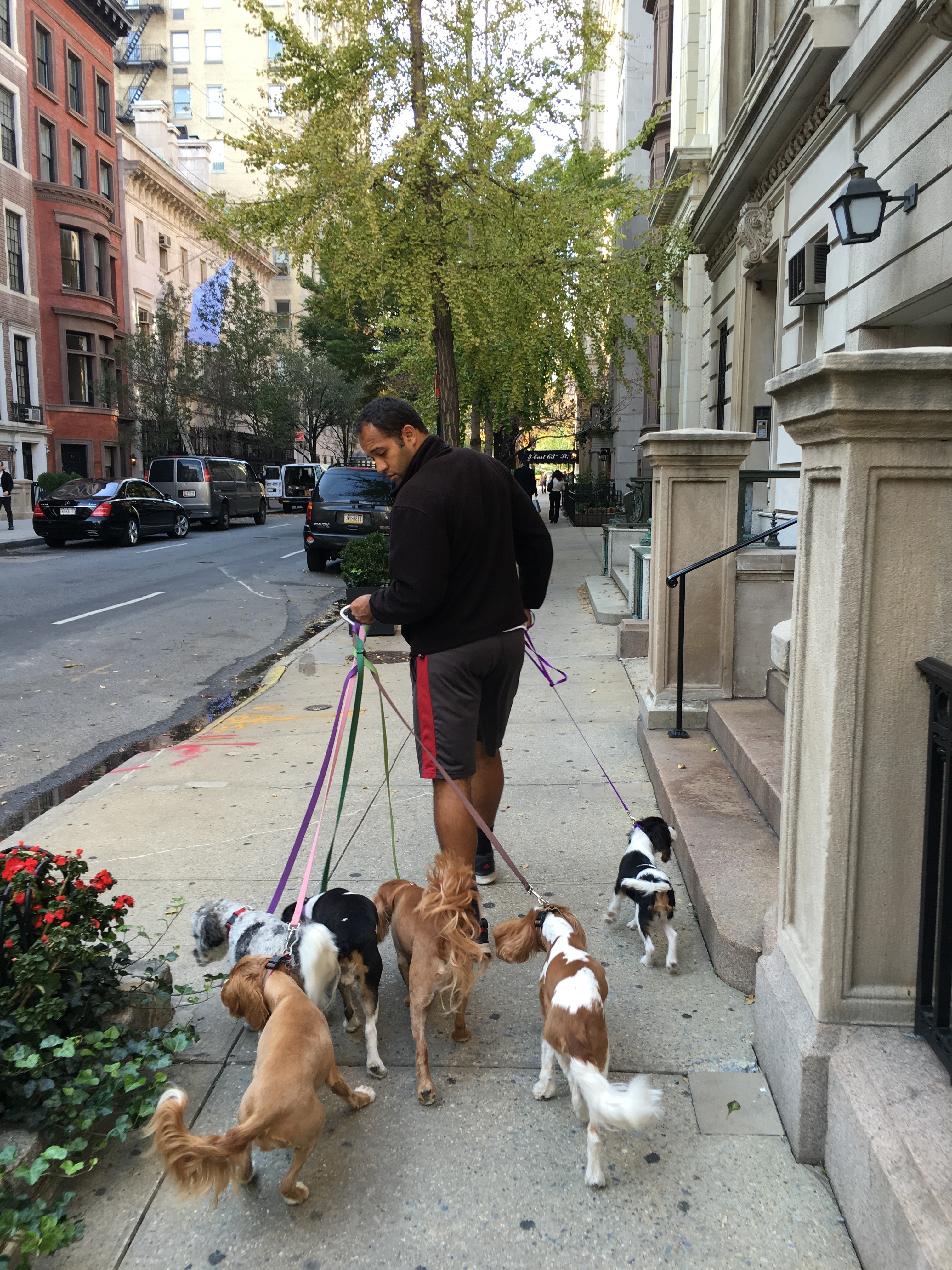 Photo by Anna Galimova : https://www.pexels.com/photo/man-walking-his-dogs-9758201/
Photo by Anna Galimova : https://www.pexels.com/photo/man-walking-his-dogs-9758201/When you decide to adopt a rescue dog, it’s likely you won't be getting a purebred.
While there are some shelters and animal rescues that specialize in specific breeds, the majority of dogs available for adoption are mixed breeds.
These wonderful dogs may have a blend of characteristics from various breeds, and in many cases, the exact mix may not be known.
It’s essential to gather as much behavioral information as possible from the shelter or rescue organization to understand the dog's temperament, needs, and potential challenges.
Spend time with the dog, ask questions about its history, and get to know its personality before making your decision to adopt.
By doing so, you can ensure a good match between the dog and your home, creating a rewarding and loving relationship.
What To Look For When Adopting A Dog
Here are things to look for with any dog you are thinking about adopting:
- Why are you getting a dog? Companionship? Guard dog? To play fetch with? Know what you are looking for in a dog and make sure the dog you choose can do what you want them to.
- How much exercise do they need and will you be able to meet the dog’s need for exercise and stimulation?
- Is your space big enough for the dog you are considering?
- What type of grooming do they need and how often?
- Does the dog bark a lot? Are they anxious?
- Do they show signs of aggression?
- Can you afford all the food, medical care, accessories, training, and other needs of this dog? Does this dog have any special needs?
- Is everyone you live with or who visits you often happy for you to get this dog?
- Can you involve your dog in your social life If not, is the dog ok with being alone often?
- Does this dog need to be able to get along with other pets or children?



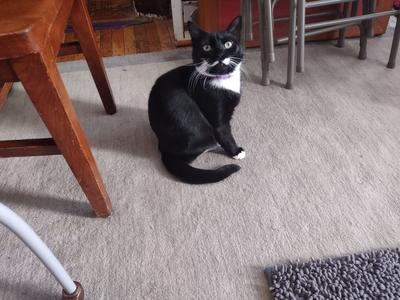


New! Comments
Have your say about what you just read! Leave me a comment in the box below.